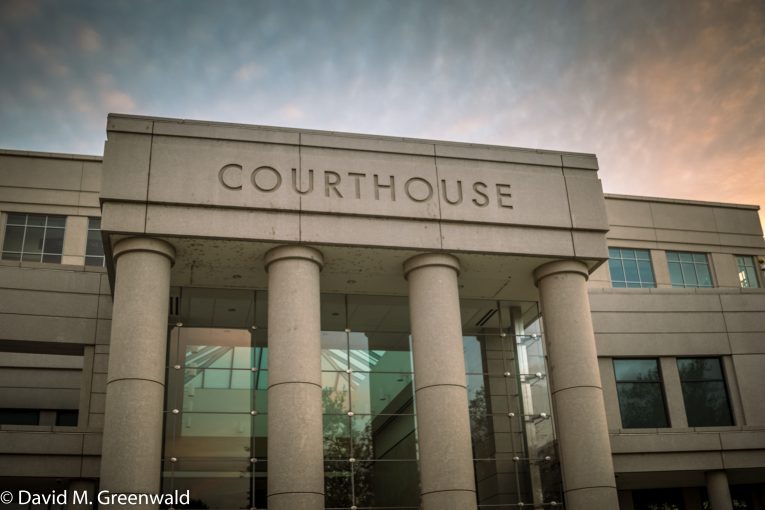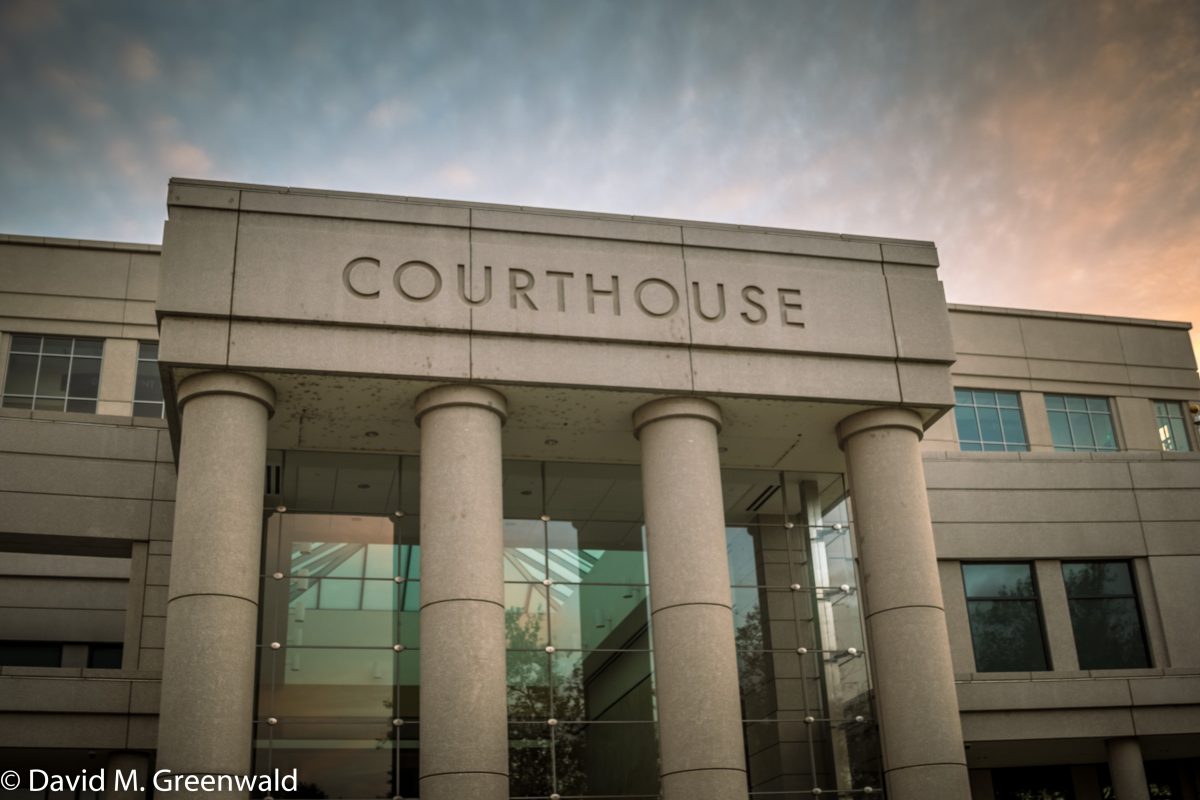

by David M. Greenwald
Executive Editor
After just over a day of deliberations, a Yolo County jury delivered a single verdict of not guilty on second degree murder, acquitting Justin Gonzalez.
Gonzalez spent seven years in custody, but the murder conviction was overturned by an appellate court, and the retrial ran over the course of nearly a month.
On Monday, Judge McAdam seemed close to considering a directed verdict before deciding to allow the jury to decide.
On Wednesday, he announced that Justin Gonzalez was free to walk out the court a free man.
The Vanguard will have more.
Previous story:
COURT WATCH: Closing Arguments Held in Gonzalez Murder Retrial; Defense Targets Witness Credibility, DNA Evidence Concerns
By Audrey Sawyer
WOODLAND, CA — Deputy Public Defender Ron Johnson presented his closing arguments to the jury Tuesday in the second murder jury trial for Justin Gonzalez here in Yolo County Superior Court.
Generally, DPD Johnson questioned the physical DNA evidence of the alleged shirt worn the night of the Woodland stabbing because, he said, it did not match Gonzalez, and questioned the credibility of witnesses and their contradictory claims on events that occurred the night of the September 2016 stabbing death of Ronald Antonio.
DPD Johnson began by stating the Gonzalez case is representative of a “textbook example” of why trusting eyewitness testimony can be problematic.
DPD Johnson argued police compounded the problem during investigation, telling jurors, “When police see conflicting testimony, they investigate based on assumptions. You do not start with the premise that something happened, that Gonzalez is guilty, if you want to know what happened.”
In addition, DPD Johnson emphasized how Deputy District Attorney Robin Johnson has used gang affiliation to suggest Gonzalez’s guilt. DPD Johnson pointed out the language used by DDA Johnson is supposed to “convince a jury that these things are happening because of gang connections, using phrases accusing Gonzalez of hunting that night.”
Referring to a video shown about Gonzalez “allegedly hunting,” DPD Johnson said the video actually shows Gonzalez stopping Alexis Velazquez (co-accused), which is contrary to what the gang officer claimed.
DPD Johnson referred to eyewitness testimony as having two issues. First, he noted Ruby Aradoz was a unique situation. DPD Johnson argued that if someone is a victim of a  crime, you need to take their testimony with a grain of salt.
crime, you need to take their testimony with a grain of salt.
DPD Johnson pointed out Aradoz in the original trial was an accused in the case and testified during that trial.
“She has made so many statements that have shifted over time. Everyone can clearly see that she had some cause in what happened, pointing out people that get chased, she clearly has some responsibility. She did not start out by saying that Gonzalez had anything to do with this,” said the public defender.
When responding to the claim from the prosecution that Aradoz was not originally truthful due to gang-related fears, DPD Johnson reminded the court that Aradoz had no issue with naming Velazquez (also gang affiliated) as the stabber to police, so that DDA story would not make sense.
When Aradoz was an accused in the first trial and heard 90 percent of it before getting a deal and getting to testify, she had an interview with an officer, said DPD Johnson, noting part of her on-the-record testimony was, “I feel like it has been so long, I feel influenced by everything I’ve been hearing.”
DPD Johnson argued the officer should have stepped in at this point, as Aradoz was saying that she is being influenced and does not quite know what happened, and that she “does not know what she will testify as to what is being remembered.”
Two weeks after the homicide occurred in September 2016, Aradoz was shown video and was told repeatedly police have evidence that the guy did it. However, Aradoz kept stating during this initial interview that she was blackout drunk and does not remember Gonzalez being there.
The officer then said to Aradoz he does not always remember a night before, after drinking, but that details come back to him after a “buddy explains it to him.”
DPD Johnson used this as an example to claim the officer was essentially saying that they are aware Aradoz does not remember, but that he will tell her what happened—so that she remembers.
In the interview, the officer is therefore trying, charged the public defender, to tell Aradoz that Gonzalez is guilty and tries to fill in gaps for her. Before she is shown some video, they talk of her pushing a guy off a bike, to which she denied, but changed her testimony after seeing the footage and expressed shock at where she was located.
When Aradoz was informed by the officer at this point that she might be in trouble, DPD Johnson argues that she now has incentive to lie considering that she was originally an accused in this case.
DPD Johnson turns his attention to Raquel Ponce-Perez, who always claimed Velazquez and Gonzalez were running together, which “we know to be false as Velazquez somehow broke away.” DPD Johnson also told jurors Ponce-Perez witnessed the crime, and has a self-interest in her case as well, given the conversations of a U-Visa.
Ponce Perez said she lives on the corner and had a clear view, but when asked to identify Gonzalez among a stack of photos, she was unable to do so, DPD Johnson reminded the jurors.
DPD Johnson then shifted to Christian Hernandez, who has since died and was involved in the first trial, and who told police that there was only one assailant.
The defense attorney said Hernandez had described Velazquez and the victim coming from the corner in a fight, and he mentioned stabbing motions, but he was clear on the fact that it was only those two involved in the fight.
In the testimony from Officer Pimentel, he said when Hernandez was asked about the possibility of another person, Hernandez maintained the same story that he only saw Velazquez with the victim.
DPD Johnson also noted to the jury the DNA testing of the shirt. The only shirt located in the trailer (which was searched via warrant) that was white was found to belong to Gonzalez, but no DNA from the victim was found, even though Gonzalez was allegedly “bear hugging” the victim while the victim was being stabbed by Velazquez.
Another point the DPD made was that the autopsy indicated many wounds (slash cuts on arms, the front, and the back) which would have shown blood, yet the Gonzalez shirt was entirely clean.
The defense concluded by again emphasizing the conflicting eyewitness testimonies and lack of physical evidence (no DNA, no blood). He pointed out that with all these factors, Gonzalez has shown he was not guilty.
Prosecutor Johnson told the jury that when they were looking in the trailer, an agent never found a knife, did not find the shorts Gonzalez was wearing, did not find Velazquez’s shirt, and made an argument that they could have disposed of the clothing.
She also argued that nothing in the record or evidence shows that the shirt with no blood was the shirt being worn that night.
On the expert (Coleman) who had claimed that Gonzalez could not have done it, DDA Johnson said: “Justin Gonzalez could not be guilty of this crime, the witness was here to make that statement to you, it would sound really good from someone with his expert background, but we also know he wasn’t given evidence, he was given the version that defense wanted him to have to make him look unbiased.”
The prosecutor said when “I asked him, he talked about the shirt as if it were found on the defendant (Gonzalez). He didn’t know the shirt wasn’t found on him, he didn’t know Gonzalez had changed clothes that night. Had he known that, he couldn’t make such a direct statement.”
On Aradoz, DDA Johnson argued: “In that interview from September 2016, Officer Pimentel said he got zero information in the interview about Gonzalez, testimony of why officers kept telling her that they did not think she was giving the entire story based on her body language and her way of speaking.
“They thought she had more information, but they did not get anything explosive in the interview about Gonzalez. She was a suspect, she had information, and they were trying to get it because she agreed to talk to them. The (prosecution is) not denying her responsibility in this crime.”
Trying to defend Ponce-Perez, the prosecution agreed Ponce-Perez placed herself at different places, but that some elements of her story remained the same, that on the night of the homicide two men in white shirts were involved. The one with the long hair (Velazquez) stabbed the victim, and the other one grabbed the victim in a bear hug.”
The DDA told jurors that although Ponce-Perez may not have exactly known where she was, she would have had to make up the entire scenario.
The prosecution denied the U-Visa claims, saying that Ponce-Perez had always described herself as “afraid” and that Velazquez had stopped to look at her, which she saw as a threat and was fearful. The prosecution argued that it is only brought up because people are saying that it is to help her out with immigration.





